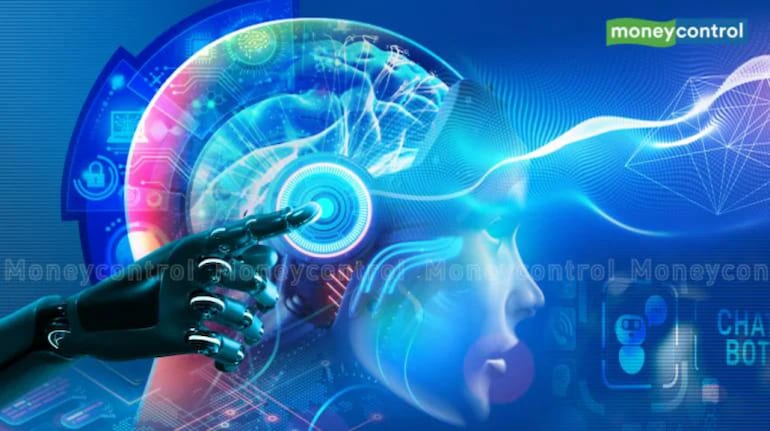
AI has become a top priority on policy agendas worldwide, as it has the
power to foster innovation, generate employment opportunities, and contribute to growth
The Indian government aims to harness the potential of Artificial Intelligence (AI), which can add $967 billion to the economy over the next decade, but faces a tightrope walk in drafting legislation for a rapidly evolving domain. It is trying to set the guardrails for the sector in a forthcoming Bill.
Earlier this year, the government created seven committees of experts to come out with a comprehensive roadmap for a policy push to AI. Last week, the panel came out with a 180-page report.
Here are the 10 most important recommendations made in the report:
Three AI centres of excellence
In the 2023 Budget, Finance Minister Nirmala Sitharaman said that the government will establish 3 centres of excellence on AI. Now one of the AI working groups has recommended that these centres focus on critical sectors such as governance, healthcare, agriculture, manufacturing and more. Their objectives include conducting foundational research, technology development, promoting innovation and entrepreneurship, and AI skill development. The working group has given special attention to how startups can leverage these CoEs by making applications commercially viable, developing products, organising innovation challenges and so on.

India Datasets Platform to have open-source architecture
The central government is set to bring in the India Datasets Platform, “one of the largest publicly assembled and anonymised datasets in the world”. The datasets will contain non-personal data and it can be used by various stakeholders such as startups, academia and so on. One of the working groups has suggested that the platform be built on an open-source architecture and codebase. “The use of open-source codebase promotes accessibility, allowing developers to contribute, customise and enhance the platform,” the report said. The working group has also suggested that the platform feature data and an API catalogue so that users can discover such resources.

Monetising non-personal data
The working committee has recommended that the India Dataset Platform be monetised. “Data providers can set pricing models, such as one-time purchases, subscriptions, or licensing fees, based on the value and uniqueness of their datasets,” the report read. It is important to note that the idea of monetising the sharing of non-personal data was dropped by the Indian government after it received criticism over it. The government last year issued a draft policy on the India Datasets Platform which had withdrawn the monetising plans.
Non-personal data regulator in 2 months
The National Data Management Office (NDMO), the nodal body which will be responsible for the India Datasets Platform should be established within 2 months, one of the AI working groups recommended. The timeline suggested by the working group also says that the government should start hiring data management units – officials within ministries/departments who will improve the quality of data and its usage – within 2 months.

The working group also suggested that the IDP be launched within 6 months. Long-term goals include publishing data anonymisation guidelines within 1.5 years, and publishing standards for fair and ethical use of data after 1.5 years.
Rs 4,000 crore funding for 725 AI startups
In the report, one of the working groups said that MeitY Startup Hub has envisaged a Future Design IndiaAI scheme with a budget of Rs 945 crore and matching funding of Rs 3,000 crore from industry for 5 years to foster AI startups. “The program envisages impacting and consolidating 725 tech startups over the course of 5 years to pave the road for an inclusive AI startup ecosystem…” the working group said.

Unlocking early-stage funding potential for AI startups
As part of the IndiaAI, the working group has proposed an AI Ignition Grant Program to support 500 AI/deep tech startups at the product development stage with a grant of Rs 30 lakh each. At the commercialisation stage, the working group has proposed 3 challenges of Rs 3 crore each across various sectors such as agriculture, health, cybersecurity, weather forecasting and so on. “In 5 years, 15 challenges with a total budget of Rs 45 crore,” the working group said.
National AI compute grid
The experts have recommended that the Indian government create a computing infrastructure of 24,500 graphics processing units (GPU) at 17 centres to enable innovation in the emerging tech area in the country by startups and academia. Under the proposal, about 14,500 GPUs have been recommended for training AI models and high-performance storage, while the rest 10,000 are for AI inferencing. A GPU centre is a group of computers with GPUs on each node to train neural networks for image and video processing.

Support for AI chips
Because of their unique features, AI chips are tens or even thousands of times faster and more efficient than central processing units (CPUs) for training and inference of AI algorithms. State-of-the-art AI chips are also dramatically more cost-effective than state-of-the-art CPUs as a result of their greater efficiency for AI algorithms. AI chips include three classes: graphics processing units (GPUs), field-programmable gate arrays (FPGAs), and application-specific integrated circuits (ASICs).
The report has suggested that the government should support the development of these AI chips through a public-private partnership (PPP) model.

Broad-based AI education
The report suggests funding for 1,000 AI research fellowships annually or for 100 institutions to get research grants in the field. For schools, colleges and vocational institutes, a model curriculum has been provided in the report that covers the fundamentals of AI, mathematics and statistics, machine learning, deep learning, natural language processing, computer vision and AI ethics.

Marketplaces and Open-source AI
To enhance AI accessibility, AI Marketplaces will be leveraged to build service models for AI as a Service (AIaaS), Infrastructure as a Service (IaaS), and Platform as a Service (PaaS), offering pre-trained models to users. Open-source AI frameworks and libraries, supported by diverse vendors and communities, will be utilised to promote vendor-agnostic AI development, fostering innovation and collaboration.
